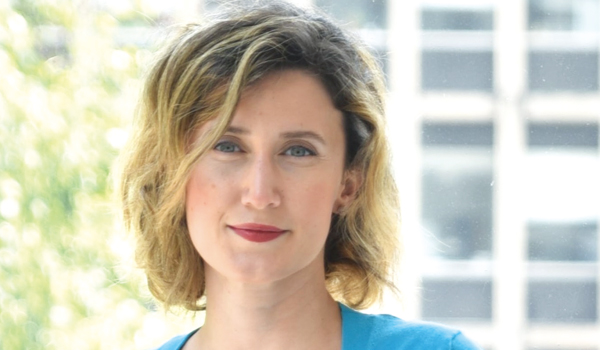Innovation in Policing
Professor John Coxhead reveals the fascinating story of Police Professional’s 2022 national competition winner.
Back in June 2022, we asked if you have a good idea to improve policing. Since then, Police Professional has been sifting and judging entries until now, when we can celebrate the 2022 winner. Do not worry if you did not apply in 2022 because the annual competition is open again on June 1 to find our 2023 winner, just apply to innovation@policeprofessional.com.
Just to remind you, the competition is open to anyone, anywhere, and you can submit an entry in any format (unlike most of policing, there is no form to fill in) and the judging criteria is this:
- How relevant is the innovation research/idea to UK policing? (25 marks);
- What potential benefits does the research/idea offer to improving UK policing? (25 marks);
- How feasible would the innovation be to realise potential benefits? (25 marks); and
- How well has the applicant articulated the idea/research? (25 marks).
The previous year’s winning entry was from Detective Inspector Anna Sedgwick and Detective Superintendent Lee Berry of West Yorkshire Police, working as a team with Karen Shooter, the domestic abuse strategic lead at Doncaster Council.
The team built on criminological theories of perceptual deterrence (Nagin 1998), rational choice (Cornish and Clarke 1987), and routine activity (Cohen and Felson 1979) and was to innovate forensic marking to deter domestic-abuse offenders to find new ways of deploying SmartWater. You can watch a film about their enterprising work here: https://www.youtube.com/watch?v=bNgF_Bw60lo
The National Innovation in Policing competition winner 2022
So, now for the big moment – who won the most recent competition? Police Professional is pleased to report that the 2022 winner really illustrates the diversity of policing inventiveness, in the shape of a retired police officer, David Sykes, who has won his first innovation award at the ripe-old age of 79 after a lifetime of inventiveness. His fascinating story represents a kind of lifetime achievement in the field of policing innovation, as you will see as you read on.
Mr Sykes was an apprentice engineer in the motor coach industry, following in the footsteps of his father, who was a specialist engineering toolmaker (someone who designed and made specialist tools tailored to fix problems).
While still working as an engineer, he joined up as a Special Constable, and then after serving some 500 hours, joined the regulars with what was then Buckinghamshire Constabulary in 1966 (which became part of Thames Valley Police in 1968), until his retirement in 1994.
Mr Sykes served in mainly uniform roles, enjoying beat work and working with the public. As a local intelligence officer, he worked with the Metropolitan Police Service’s highly commended Detective Superintendent Roy Herridge, QPM, founder of Surelock Investigators and Security Consultants, after coming up with the idea for Operation Hoist in the late 1980s.
Lots of people have ideas about policing but there is often no easy way to get them listened to
Throughout his policing time and ever since Mr Sykes has remained a serial inventor with 20 patented ideas subject to an IP Audit with the British Patent Office and with more than 40 still in the design stage. His attempts to get ideas through various systems and stakeholders have been problematic over the years, but he jumped at the chance to send in ideas for the national innovation competition, which he won with a double entry. These are the ideas that won him the competition.
EM999
EM999 (One Way Public Service) is a communication tool for all emergency services. It represents a concept to enable dynamic information to be instantly transmitted to voluntary users, wherever they are, via their declared preferred medium and greater than the media groups with editorial factors required.
EM999 is a system that users can freely sign up to with all emergency services to hear information and transmit it, including responses for help during an incident. As a voluntary system, no personal details are required other than a preferred contact medium, such as texting or Twitter, into a national emergency services platform sign-up.
Mr Sykes believes the system needs an app development, but with the right specialists involved, it offers early alerts, and early dynamic witness pooling, which could even integrate visitors from abroad flexibly and offers the potential for sponsorship funding by insurance companies in the future.
Scams
This idea represents a way to stop identity theft, fraud, hacking and scams, on the internet without disrupting the retail user.
Scams are about restricting potential fraud by stopping criminal access to your banking money. One aspect is to set a dormant code to your digital banking cards – effectively switching them off rather than them being open to using (and abusing) 24/7. This would work using a second overriding passcode and limit a bank card’s use within an authorised radius.
Mr Sykes’ concept is multi-layered and offers a third party protection agency that would authorise payments of any number of banking cards through one clearance, effectively creating a form of a financial bodyguard that any scammer would have to convince before they accessed any money.
Police Professional asked Mr Sykes, perhaps the longest-standing policing inventor of our time, about his inventiveness.
PP: How do you come up with ideas?
David Sykes: “I’ve no idea! I think it’s a stumbling block when people try to over analyse how ideas come about. People sometimes can’t understand where ideas come from, and these things are not at all restricted to people who have been to university – somewhere where I’ve never been to. I’ve had so many ideas it often astounds people, but I don’t know how it works, it just does. Ideas just come, and it’s often about fixing a problem – where I suddenly think of a solution. When I was an engineering apprentice, I learnt to think on my own two feet, and that continued in policing because back then you were on your own a lot, before personal radios, just a whistle, handcuffs and a notebook. I remember going to a job once where a horse had got stuck in a pond and the fire service couldn’t get it out and things were desperate. I came up with an idea to get the flat fire hoses under the horse’s belly to lift it out and it worked, much to everyone’s amazement and relief. I think policing is all about using your head to figure out how to do things, and better.”
PP: How do you hope your ideas will make a difference?
DS: “Both ideas can make people safer and protect them. Scams will make a massive difference because no one would lose money again. The idea here is that everyone has a form of financial bodyguard around them. That idea of course needs developing with specialists; I don’t want to run such a business at my age I’m simply offering up the idea for others to pick it up and run with it.
“The EM999 idea will make a great difference and, by the way, could have been used even during Covid-19 track and trace, by contacting the public with all emergency services involved, including Mountain Rescue and Lifeboats, to get a dynamic and agile communication feed, like an instant situation or incident room. The idea means people can get instant information when they need it through one platform and allow dynamic and agile interoperability.”
PP: Why do you think policing finds it difficult to come up with ideas?
DS: “I don’t know. It’s funny really because in my experience criminals are good at coming up with ideas whilst policing is often on the back foot trying to work out what happened and then what to do about it. I think back to my engineering days and somebody who came up against a problem and just sat there and couldn’t find a way through wouldn’t really be a very good engineer. Policing should be supporting the ideas of people and problem fixers more, I’ve seen policing over enough years now to know that it doesn’t take ideas on fast enough, and that means it ends up with the same problems and things don’t change for the better enough.”
PP: Any tips for any future National Innovation in Policing competition winners out there?
DS: “I wish competitions like this had been around before because I might have won it 40 times by now, I think lots of people have ideas about policing but there is often no easy way to get them listened to, so I would encourage everyone to voice their ideas, and nowadays they stand a much better chance of being heard but remember to register and protect your ideas.”
Professor John Coxhead, SFHEA, FRSA, is Professor of Policing Innovation and Learning at UEL.





